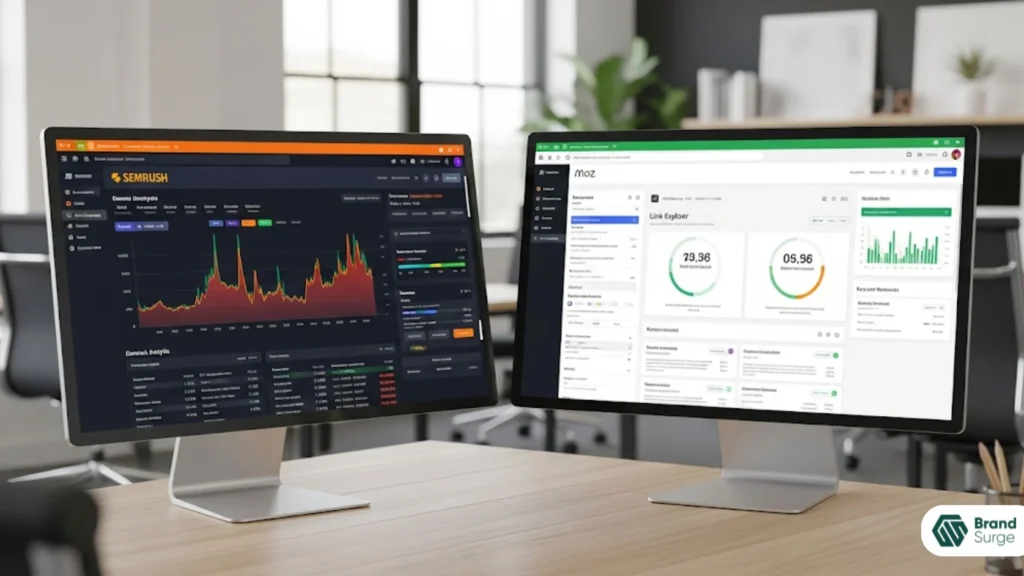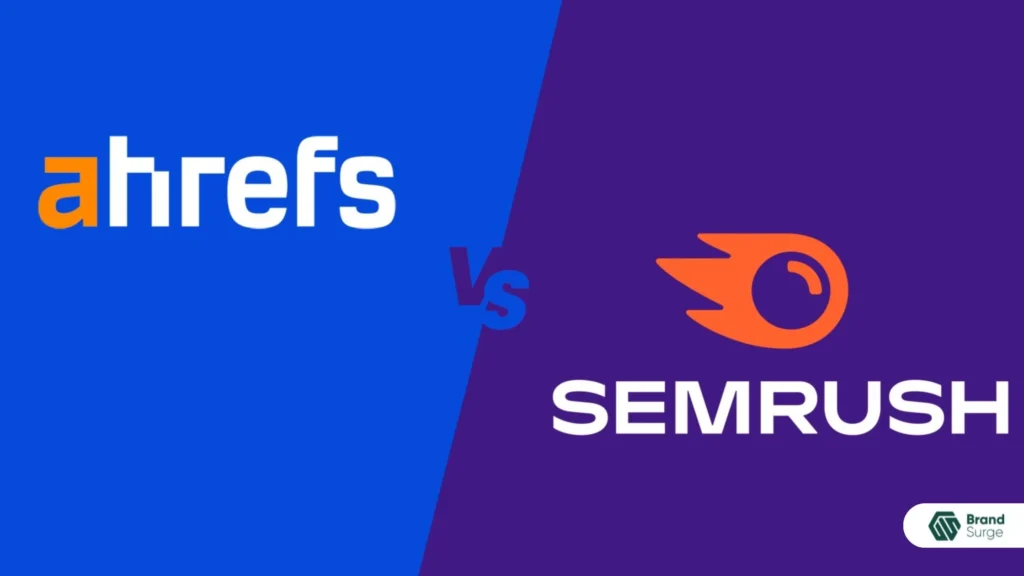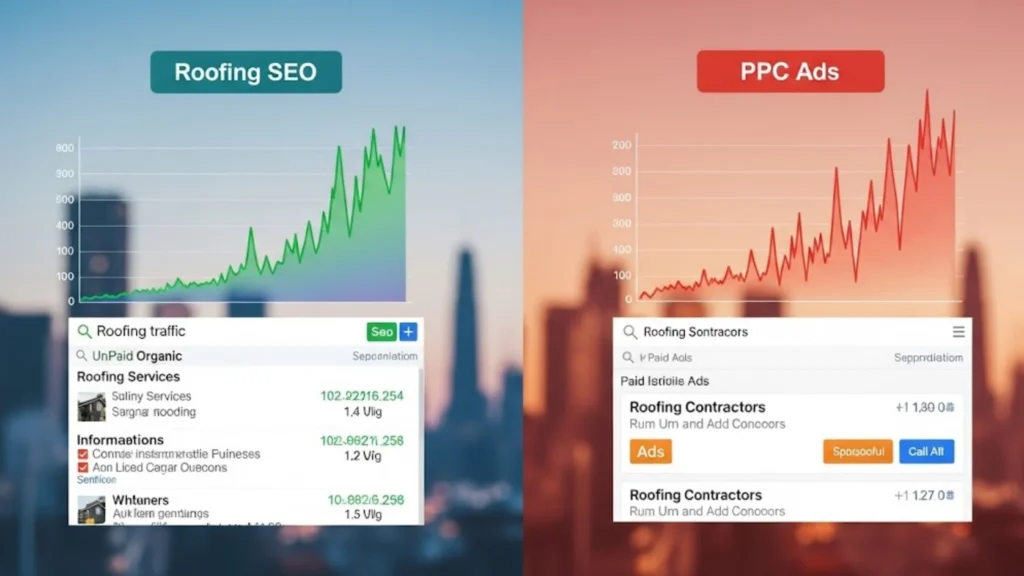Surfer SEO vs Frase is a comparison that every content marketer and SEO specialist grapples with when selecting powerful SEO tools to elevate their on-page strategy. In evaluating Surfer SEO vs Frase, professionals seek clarity on features like keyword research, content planning, and AI-driven optimization. This in-depth analysis dissects both platforms’ strengths and limitations, guiding growth-focused teams toward the right choice for their content marketing efforts.
What Is the Difference Between Surfer SEO and Frase?
Surfer SEO and Frase both harness AI and NLP (Natural Language Processing) to streamline content writing, but their origins and core focuses diverge. Surfer SEO launched as a pure content optimization tool, emphasizing SERP analysis, recommended keyword usage, entity coverage, and internal linking automation. Frase rolled out initially as a research-and-creation platform, excelling at generating content outlines, topic clusters, and draft text based on competitive insights.
Surfer SEO’s Content Editor integrates with SERP Analyzer data to suggest ideal word count, headings, related terms, and internal link opportunities. It then measures content against top-ranking pages in real time, ensuring alignment with on-page SEO best practices. Frase uses its AI to create comprehensive briefs in seconds and produce draft sections that users can refine. While Frase provides SEO scores, Surfer’s score is backed by documented correlations with actual Google rankings.
Surfer SEO vs Frase considerations begin with use case: teams prioritizing deep optimization, backlink gap analysis, and scalable automation often lean toward Surfer. Content teams wanting rapid ideation, outlines, and a straightforward AI writer may prefer Frase.io. . The distinction lies in Surfer’s forward-compatible approach—adapting to evolving AI answer engines—versus Frase’s speed in generating actionable content blueprints.
Why Should Content Marketers Evaluate Their Needs First?

Every content department has unique workflows and capacity constraints. Before diving into tool features, marketers should:
- Map existing content optimization processes and identify bottlenecks.
- Determine whether primary gaps lie in research, drafting, or post-creation refinement.
- Evaluate volume versus depth: do they need dozens of quick posts or fewer, in-depth assets?
- Align tool choice with long-term goals, whether that’s topical authority, improved CTR, or scale.
This self-assessment lays the groundwork for deciding between a tool like Frase, which accelerates initial drafting, and Surfer SEO, which emphasizes iterative, data-driven optimization. Teams can even combine both—using Frase’s briefs to kickstart drafts and Surfer SEO to polish for maximum on-page SEO impact.
How Does Each Platform Handle Keyword Research and Topic Clusters?
Surfer SEO’s Keyword Research and Content Planner modules provide robust data on search volume, difficulty, and related terms. The Content Planner can generate hundreds of topic clusters around a seed keyword, incorporating NLP-driven entities for thorough coverage. Surfer automatically recommends frequently co-occurring terms, semantic neighbors, and long-tail variations critical for capturing intent.
Frase does not natively perform comprehensive keyword research. Instead, it leverages integrated Google Search Console data to reveal existing content opportunities and queries driving traffic. Users can pull “People Also Ask” questions into briefs or identify audience FAQs for topic clusters. While this approach surfaces relevant angles, it lacks the broad external keyword database Surfer SEO offers.
For teams prioritizing deep keyword discovery, Surfer SEO stands out as the go-to SEO tool. Frase remains valuable for surfacing internal content gaps and glossing FAQs into content briefs. Some marketers use Surfer to triangulate high-potential keywords, then feed those into Frase to rapidly craft outlines.
Surfer SEO vs Frase in Content Planning and Brief Creation

Surfer SEO’s Content Planner and Content Editor sequence guides users from keyword to outline to optimized draft in a single workflow. Users input a target term and Surfer delivers:
- A clustering of related topics and subtopics
- A visual topic map of entities and their interconnections
- A draftable outline with recommended headings and sections
Frase’s Brief Builder generates an SEO-driven content outline in under ten seconds. It populates sections with relevant headings, People Also Ask questions, and entity suggestions. The UI places key SERP insights alongside brief drafts, allowing writers to click and expand each section.
In practice, Surfer’s planning excels at hyper-targeted optimization, while Frase shines for lightning-fast brief creation. Teams needing exhaustive topic clusters may lean Surfer, whereas those requiring quick, actionable briefs often adopt Frase.
Which Tool Delivers Superior Content Editor Workflows?
Surfer SEO’s Content Editor stands out for its on-the-fly optimization score and granular recommendations. As writers compose, Surfer evaluates:
- Exact and related keyword density
- Entity coverage (people, places, topics)
- Readability and broken headings
- Internal and external link suggestions
Frase’s Editor focuses on content generation through AI prompts. Writers can expand sections with the “Write for Me” feature, which synthesizes SERP insights into paragraphs. Frase scores on-page signals but does not continuously recalibrate the brief based on live writing.
When the goal is deep on-page compliance—perfectly matching competitor structures and entity ecosystems—Surfer’s Editor is unparalleled. When rapid draft generation and automated section fleshing are priorities, Frase’s AI editor accelerates output.
Can Surfer SEO and Frase Handle Internal Linking?

One of Surfer SEO’s most lauded features is automated internal linking. Upon connecting Google Search Console, Surfer analyses existing site content and URL structures, then suggests contextually relevant internal links inside the Content Editor. Writers insert links with a click, ensuring logical site architecture and distributing link equity.
Frase does not natively automate internal linking. Users must search their site manually or refer to external tools to map related content. This manual step can be tedious and error-prone, especially for large sites.
For teams that value seamless site structure optimization and wish to reduce manual tasks, Surfer SEO offers a clear advantage in internal linking automation.
A Comparative Pricing Overview
Understanding pricing tiers clarifies ROI when choosing between Surfer SEO vs Frase. The table below summarizes representative plans.
| Feature | Surfer SEO Essential | Surfer SEO Advanced | Frase Basic | Frase Team |
| Monthly Cost | $69 | $149 | $45 | $115 |
| Monthly Content Edits | 25 | 125 | 30 briefs | Unlimited briefs |
| SERP Analyses per Day | 100 | 500 | N/A | N/A |
| Keyword Research | Included | Included | Limited to GSC integration | Limited to GSC integration |
| Internal Linking | Automated, 1-click | Automated, 1-click | Manual | Manual |
| AI Draft Generation | Integrated via Jasper AI add-on | Integrated via Jasper AI add-on | Built-in | Built-in |
This pricing snapshot illustrates how Surfer SEO’s cost scales with deeper analysis capacity, while Frase’s tiers focus on briefs and AI word limits. Teams should weigh content volume, depth of analysis, and the need for automation when estimating budget.
Integrating Surfer SEO vs Frase Into Existing Workflows
Successful adoption hinges on seamless integration. To get started:
- Audit current tools (Google Docs, WordPress, project management).
- Train teams on Surfer’s Content Editor scoring and link automation.
- Develop Frase templates for recurring content types (blog posts, product pages).
- Establish handoff processes: use Frase briefs for draft writers, then migrate to Surfer for final optimization.
- Monitor performance: track ranking improvements, traffic growth, and time saved per article.
By orchestrating a hybrid approach—ideally supported by Brand Surge LLC’s expertise—organizations can leverage each tool’s strengths without overhauling established workflows.
How Natural Language Processing Shapes Content Recommendations

Both Surfer SEO and Frase.io employ NLP to understand competitor content. Surfer’s NLP-driven suggestions include entities and semantic topics that Google’s algorithms favor. Its Content Score reflects topical depth and structured context layering, ensuring compatibility with AI answer engines.
Frase uses NLP to surface relevant headers and phrases and to generate coherent draft text. It draws from top-ranking pages, pulling commonly used terms and question formats.
When evaluating tools, consider how each platform’s NLP model stays updated. Surfer continuously adapts to changes in how AI systems surface content, making it more “future-proof” for evolving search landscapes.
Selecting the Right Tool Based on Business Objectives
Content marketers must align tool choice with overarching goals:
- For rapid scaling of surface-level content and idea generation, Frase accelerates briefing and draft stages.
- For high-stakes, enterprise-grade on-page SEO compliance, Surfer SEO ensures thorough optimization from start to finish.
- Small teams or solo entrepreneurs might opt for Frase’s lower entry price and built-in AI writing for fast ROI.
- Agencies managing multiple client sites can benefit from Surfer’s white-label reporting and internal linking automation.
When budgets allow, many organizations choose both platforms, exploiting Frase for initial content ideation and Surfer for final SEO polish.
Conclusion
After meticulously comparing features, workflows, and pricing, it becomes clear that Surfer SEO vs Frase each excel in distinct areas of the content marketing funnel. Frase delivers lightning-fast briefs and AI-powered draft generation, ideal for teams prioritizing speed and volume. Surfer SEO’s deep on-page SEO analysis, NLP-driven entity coverage, and automated internal linking make it the tool teams grow into for sustained ranking success.
Brand Surge LLC recommends evaluating the organization’s content objectives and validation metrics first. Then, deploy the platform—be it Frase, Surfer, or a hybrid approach—that best aligns with those goals. For expert assistance in integrating these platforms into a cohesive workflow, explore our SEO Services or feel free to Contact us for a personalized consultation.
Surfer SEO vs Frase remains a nuanced choice, but with the right strategy and partnership, any content team can drive measurable SEO performance in 2025 and beyond.
If more details are needed on choosing between Surfer SEO vs Frase or integrating them into your workflow, Brand Surge LLC’s team is ready to support your journey.
Frequently Asked Questions
1. How does Surfer SEO’s Content Score differ from Frase’s score?
Surfer’s Content Score is backed by correlation studies demonstrating a meaningful relationship with Google rankings, while Frase has not published benchmarks, leaving its score’s predictive power unclear.
2. Can Frase.io automate internal linking?
No. Frase requires users to manually identify and insert internal links, whereas Surfer integrates directly with Google Search Console to suggest and insert links automatically.
3. Which platform offers better keyword research capabilities?
Surfer SEO includes a comprehensive keyword research module with search volume, difficulty, and related term suggestions. Frase relies on Google Search Console data for limited keyword insights.
4. Is it possible to use Surfer and Frase in tandem?
Yes. Many teams use Frase to generate briefs and initial drafts, then migrate content into Surfer for final optimization, scoring, and internal linking.
5. Do both tools integrate with third-party AI writing services?
Surfer integrates with Jasper AI for draft generation, while Frase has its own built-in AI writing assistant for content creation.



